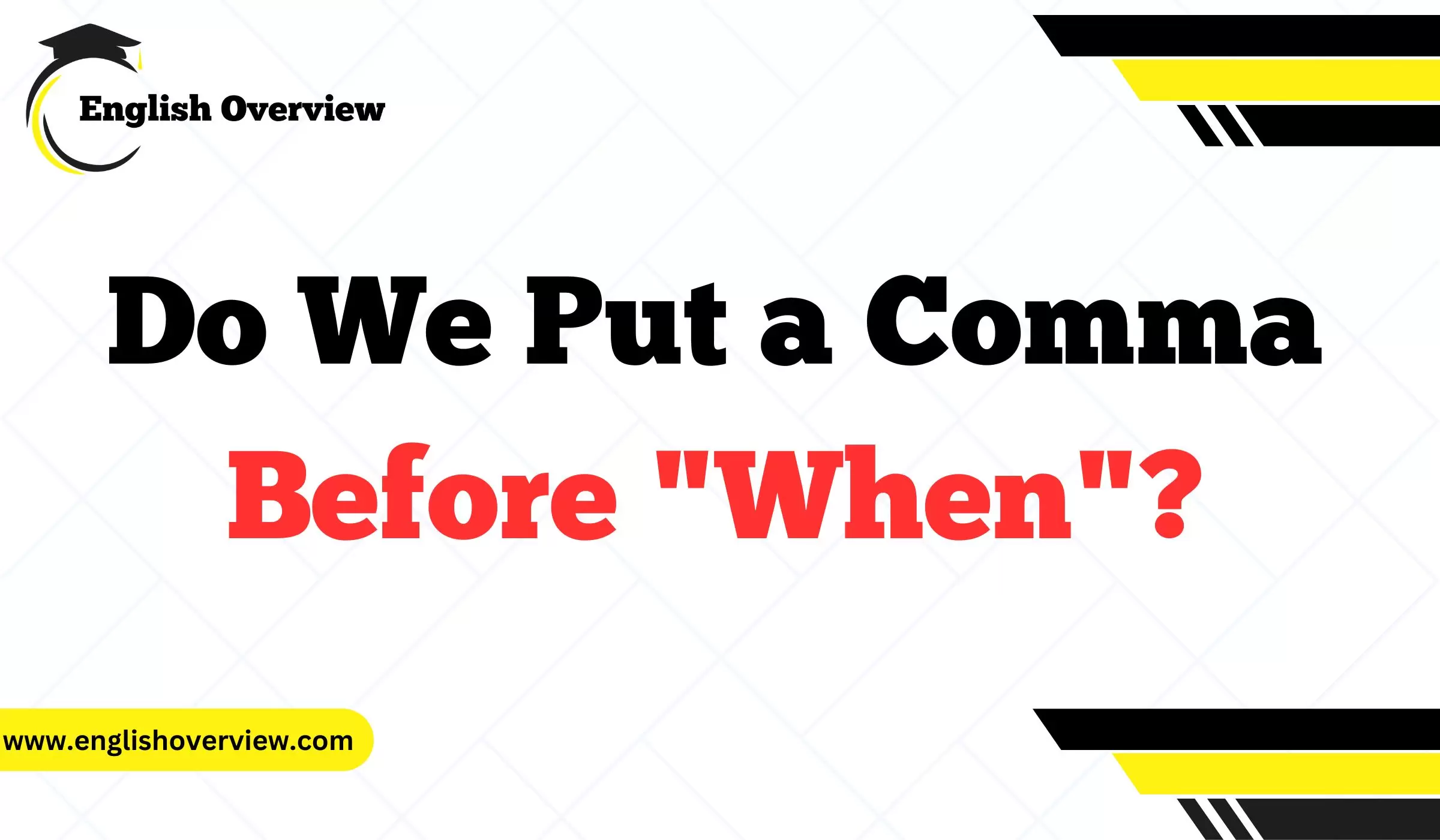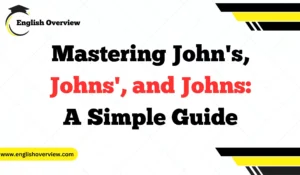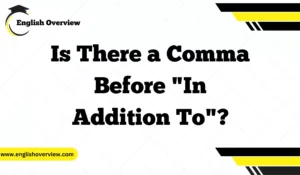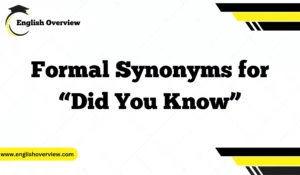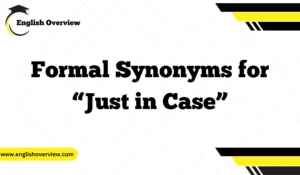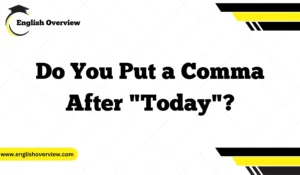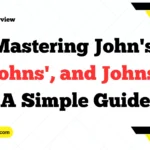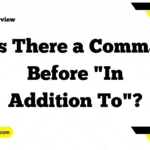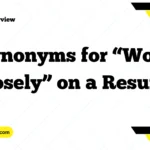Deciding whether to put a comma before “when” can be a bit confusing. The use of a comma depends on how “when” is being used in a sentence. This guide will explore the rules for using commas with “when,” including correct and incorrect examples to help you understand each scenario better.
Rules for Using Commas with “When”
Rule 1: When “When” Introduces a Dependent Clause
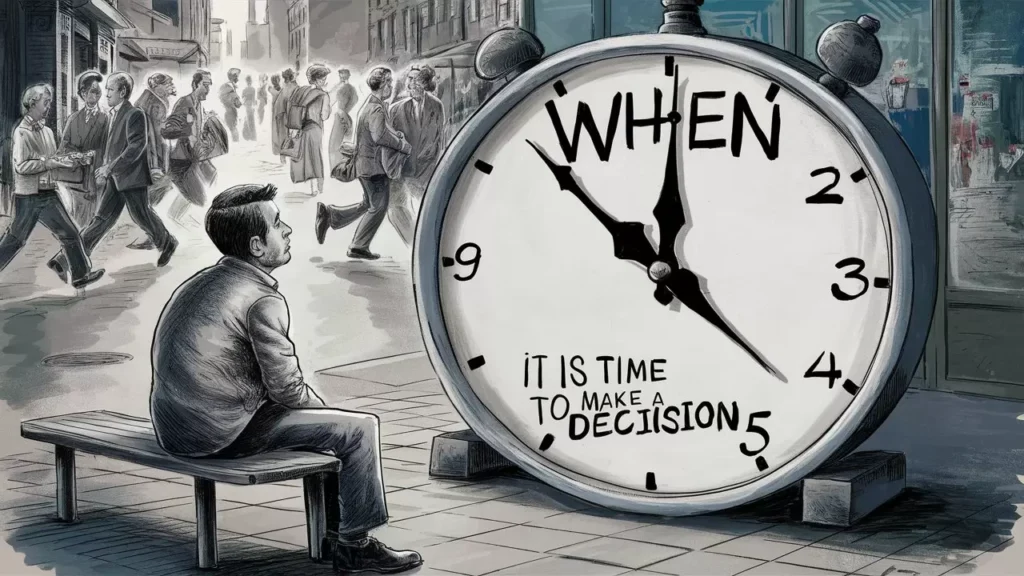
If “when” introduces a dependent clause that provides necessary information about the main clause, you generally do not need a comma.
Correct Examples:
- “Call me when you arrive.”
- “I was watching TV when the phone rang.”
Incorrect Examples:
- “Call me, when you arrive.”
- “I was watching TV, when the phone rang.”
Rule 2: When “When” Introduces a Nonessential Clause
If the clause introduced by “when” adds extra information but isn’t essential to the main clause’s meaning, use a comma.
Correct Examples:
- “The meeting, when it finally started, was over in an hour.”
- “Our vacation, when we finally went on it, was relaxing.”
Incorrect Examples:
- “The meeting when it finally started, was over in an hour.”
- “Our vacation when we finally went on it, was relaxing.”
Rule 3: Beginning a Sentence with “When”

When a sentence begins with a “when” clause, it’s usually followed by a comma to separate it from the main clause.
Correct Examples:
- “When I get home, I’ll call you.”
- “When the rain stopped, we continued our walk.”
Incorrect Examples:
- “When I get home I’ll call you.”
- “When the rain stopped we continued our walk.”
Rule 4: “When” in the Middle of a Sentence
If “when” is used in the middle of a sentence to introduce a clause that is essential to the sentence’s meaning, don’t use a comma.
Correct Examples:
- “The moment when the curtain fell was unforgettable.”
- “She remembers the day when she first met John.”
Incorrect Examples:
- “The moment, when the curtain fell, was unforgettable.”
- “She remembers the day, when she first met John.”
Rule 5: “When” With Parenthetical Elements
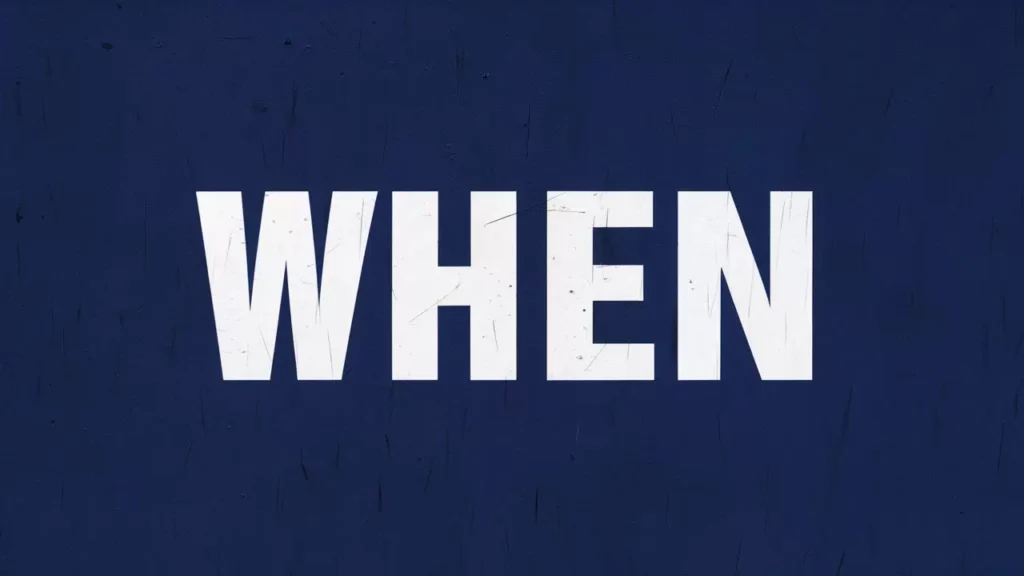
If “when” introduces a phrase that acts as an aside or provides additional, non-essential information (parenthetical), use commas around the clause.
Correct Examples:
- “The concert, when it was finally rescheduled, sold out within hours.”
- “His book, when it was published, received widespread acclaim.”
Incorrect Examples:
- “The concert when it was finally rescheduled sold out within hours.”
- “His book when it was published received widespread acclaim.”
Rule 6: “When” With Dates and Times
If “when” precedes a date, time, or specific occasion and is part of a larger sentence, use a comma if the information is non-essential.
Correct Examples:
- “July 4th, when we celebrate Independence Day, is my favorite holiday.”
- “8 AM, when the store opens, is the best time to shop.”
Incorrect Examples:
- “July 4th when we celebrate Independence Day is my favorite holiday.”
- “8 AM when the store opens is the best time to shop.”
Read More: Do You Put a Comma After “Otherwise”?
Rule 7: “When” in Conditional Sentences
In conditional sentences, if “when” introduces a condition, you don’t need a comma.
Correct Examples:
- “When you see her, tell her to call me.”
- “You’ll understand when you’re older.”
Incorrect Examples:
- “When you see her, tell her to call me.”
- “You’ll understand, when you’re older.”
Rule 8: “When” With Lists
When “when” is used in sentences that list multiple conditions or times, no comma is required unless it’s for clarity or to avoid misreading.
Correct Examples:
- “When I wake up, eat breakfast, and read the paper, my morning is perfect.”
- “She feels happiest when she’s reading, when she’s painting, and when she’s gardening.”
Incorrect Examples:
- “When I wake up, eat breakfast and read the paper, my morning is perfect.”
- “She feels happiest, when she’s reading, when she’s painting, and when she’s gardening.”
Rule 9: “When” and Independent Clauses
If “when” is used to connect two independent clauses, consider whether the “when” clause is essential or additional information to decide on comma usage.
Correct Examples:
- “I had just sat down when the phone rang.”
- “We were about to leave when it started to rain.”
Incorrect Examples:
- “I had just sat down, when the phone rang.”
- “We were about to leave, when it started to rain.”
Rule 10: Emphasizing Time with “When”
When “when” is used for emphasis or to draw attention to a specific time, a comma can help to set off the clause for emphasis.
Correct Examples:
- “It was on my birthday, when I turned 30, that I decided to travel the world.”
- “It is at night, when the city sleeps, that I feel most alive.”
Incorrect Examples:
- “It was on my birthday when I turned 30, that I decided to travel the world.”
- “It is at night when the city sleeps, that I feel most alive.”
Understanding the correct use of commas with “when” can enhance your writing’s clarity and coherence. Always consider the role of the “when” clause in the sentence to determine the need for commas.

Nicholas Clark is currently an English instructor at a university. She has experience in teaching and assessing English tests including TOEFL, IELTS, BULATS, FCE, CAE, and PTEG. With over a decade of teaching expertise, Nicholas Clark utilizes his knowledge to develop English lessons for her audience on English Overview.
